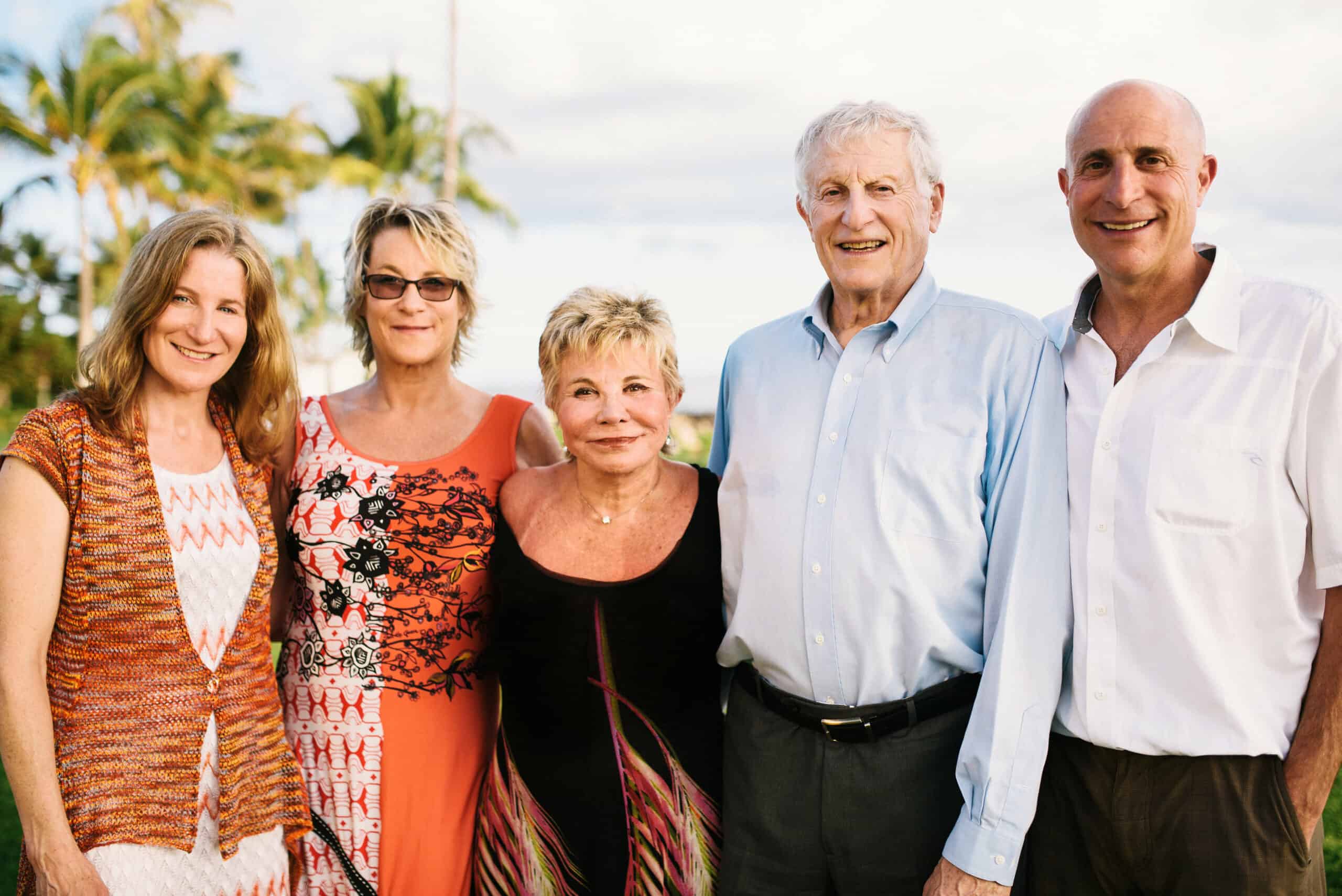Written by Jill Diamond, executive director of the Diamond Foundation
It's taken me seven years to write these words. Seven years of crushing grief and inconsolable loss. Seven years of grappling with the endless questions I can’t escape: "What if my brother received the proper treatment? Would he be here with us today?"
My brother Steven had it all: he was athletic, captivating, smart, handsome, and popular. As a child he was invincible, performing any dare-devil trick without fear or consequence. As a brother he was my protector; watching my back whenever I got into trouble. As a father to his two girls, Steven was treasured. And as an addictions counsellor for more than eight years, he had a healing touch, journeying with clients as they navigated the depths of substance use disorder. But while my brother’s personal life was punctuated with long periods of sobriety and joy, Steven faced a prolonged struggle that put him in and out of treatment for years. He was grappling with something we couldn’t begin to understand, and the struggle was herculean.
Steven tried innumerable times to overcome his disease of substance use disorder: 12 steps, private recovery, specialists, psychologists, mental health workers, everything. My family tried everything, too, including thousands of dollars for the world’s top-tiered addiction treatment centres to try to help my brother. But no matter where we turned, we never found the help he needed. Instead, we encountered two problems at almost every turn:
- Steven’s illness was never properly treated medically
- Even for a family with the means to spend money on private recovery and addiction treatment, Steven faced a messy system of delays and disappointments.
The twists and turns were excruciating. The waitlists proved fatal. After years of struggle, Steven was finally placed on a three-month waitlist to see a BC addiction psychiatrist. He was killed by fentanyl less than one week before his appointment. My beloved brother was just 53.
What does Steven’s life and tragedy tell us? After all, he had tools most people don’t: education and expertise in the field of addictions, along with family means to pay for treatment. If someone like him couldn’t get well within our health care system, despite his entire life’s effort, we must confront an awful truth. Our system isn’t simply ‘broken’. The system we need doesn’t even exist.
A key factor in my brother’s death, and a key driver of substance use-related harms in general, is the lack of a seamless model of care across Canada. According to Dr. Seonaid Nolan, head of Providence Health Care’s Division of Addiction and clinician scientist with the BC Centre on Substance Use, “Gaps that currently exist between prevention, treatment, and recovery mean that people are not able to access supports they need, when and where they need them. It’s a fragmented and siloed system and access to comprehensive, evidence-based, and coordinated substance use care can be a challenge as a result.”
In other words, when someone experiences relapse, our system provides little safety net to catch them. They are often left to start all over, alone, waiting for treatment once again while vulnerable to a myriad of risks during a critical window of time. In Vancouver, where my brother died, we know wait times for detox are still weeks long. Simply put, our present system is a labyrinth. There is no clear way in, out, or through.
But a new path is possible. Physicians trained in addiction care, like Dr. Nolan, paint a clear picture of what we need. The best available evidence shows treatment involves a range of medications, such as opioid agonist treatments or naltrexone for an alcohol use disorder, alongside withdrawal services and stabilization care. All this, when offered together with critical psychosocial supports like housing or cultural services, creates care for the entire recovery journey. It must all work together, seamlessly, and ideally in one place.
This week, my family is taking steps to make this happen. We are officially announcing a $20 million donation to St. Paul’s Foundation, for the new Road to Recovery at Vancouver’s St. Paul’s Hospital. It’s one of the Diamond Foundation’s biggest donations ever, helping to create a ‘first-in-Canada’ model of care that could prove transformative.
Unlike current models, people will not be forced to endure agonizing waitlists for different resources at different places at different times. Instead, Road to Recovery will cut weeks or months of waiting within a full spectrum of treatment services centralized all in one location.
The goal is a seamless transition between all stages of one’s recovery journey—from the Rapid Access Addiction Clinic through withdrawal management, in-patient recovery-focused beds, transitional housing, outpatient treatment, and more. The initiative will eventually house 100 beds, the first of which, focused on stabilization, will open in the fall of 2023. Our hope is this new system sets a standard across the country.
Treatment for substance use disorder is not simple. The toxic drug crisis is bedevilling governments across North America. So, as much as it grieves my soul to share our tragedy so publicly, I’m writing these words to prod our country forward.
Recovery is not about a bad person becoming good, it is about a sick person becoming well. If this treatment was available to Steven when he came begging, "What’s next?", he might still be alive. He deserved better. Road to Recovery is here for other Canadians on a similar path.
Addiction is not a moral failing, nor a weakness, nor a choice. It is a disease that can come for anyone—including you and those you love. Ours was not a success story. We want to rewrite history for others.
The Diamond Foundation’s leadership gift aims to transform substance use treatment across the country.
